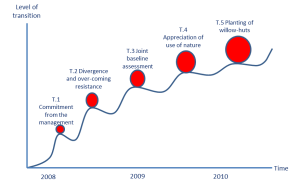As one of the organizers of the next World Environmental Education Congress (WEEC), to be held in June of 2015 in Gothenburg, Sweden, I was asked to introduce some of the key topics to be addressed during the congress at the European Environmental Education Days (Bergamo, Italy, September 24-25, 2014). Since it was a bit consuming in terms of time and energy… we agreed that I would record my talk here in Gothenburg where I am currently part of my time. In the talk I use the release of the iPhone 6 as an entry point to talk about the complexity of socio-ecological challenges that are compounded by a dominating neo-liberal view of economics. I end the talk by briefly touching upon some of the main themes of the congress. The conference website at http://www.weec2015.org has just opened its abstract submissions feature and people can submit their abstracts until mid-December. Environmental and sustainability education will need to go hand in hand if we are to make a transition towards a healthier, more equitable, just and mindful society that does not further compromise the carry-capacity of planet Earth.
The talk was posted today on youtube here</a


